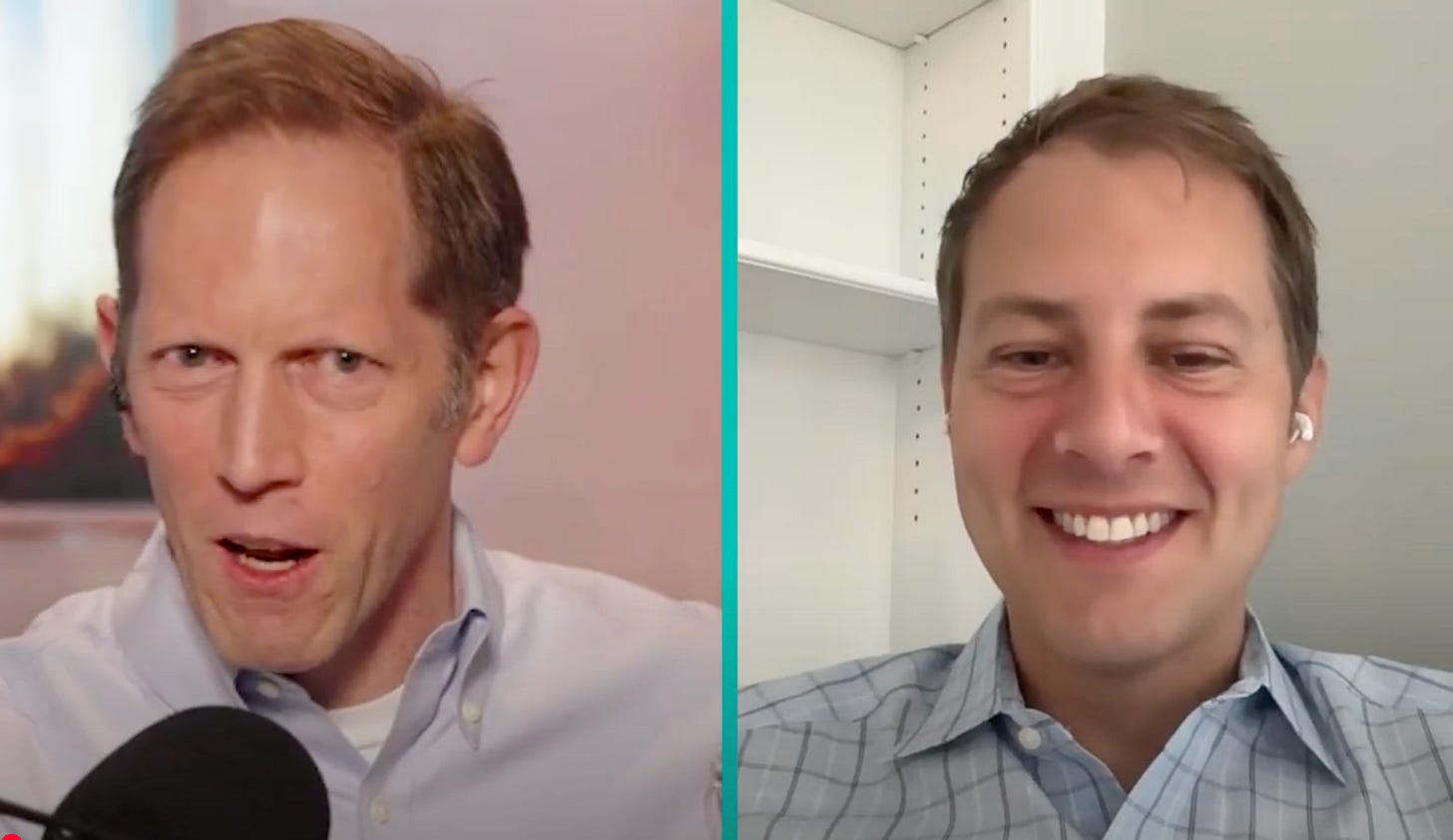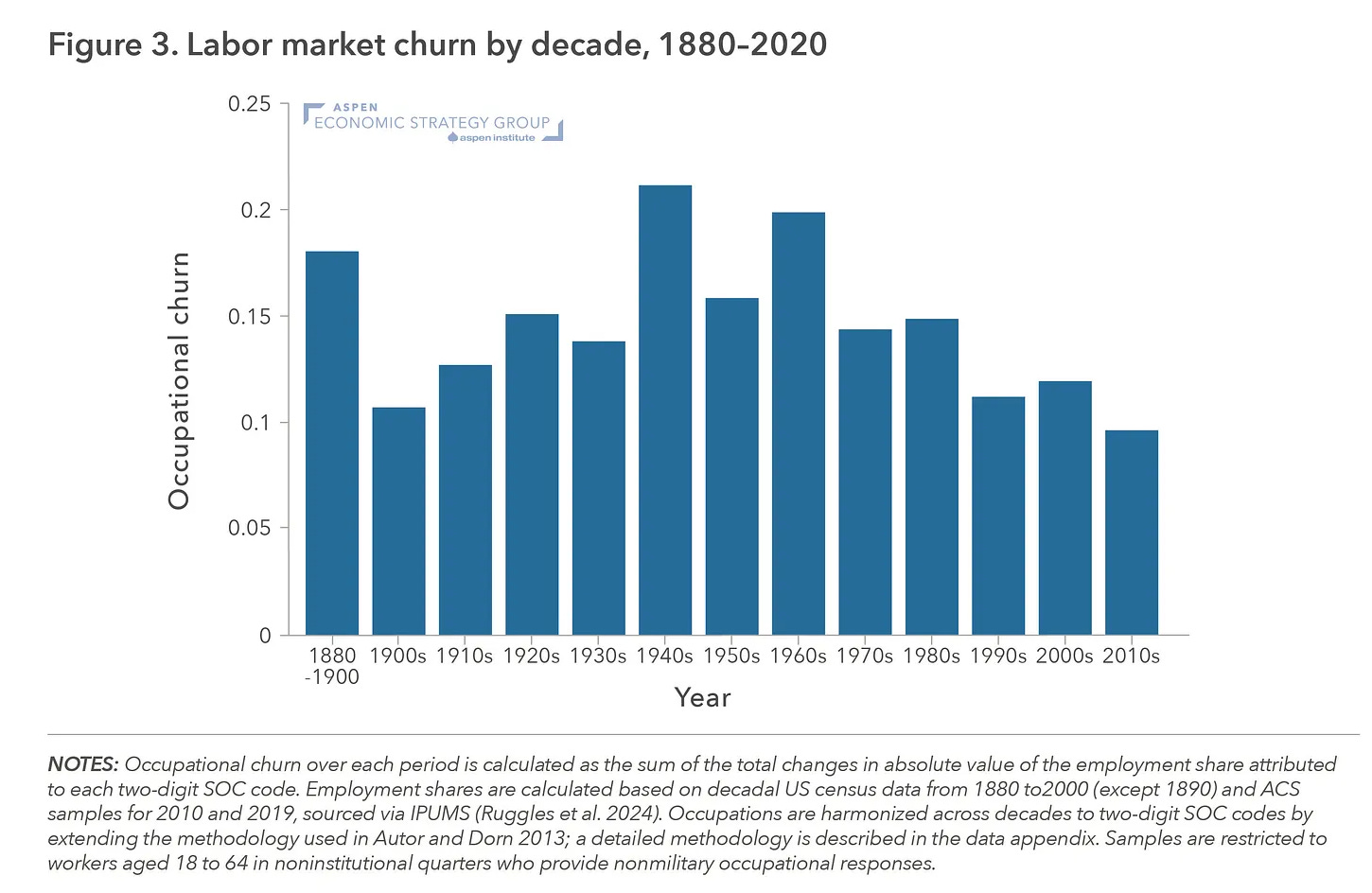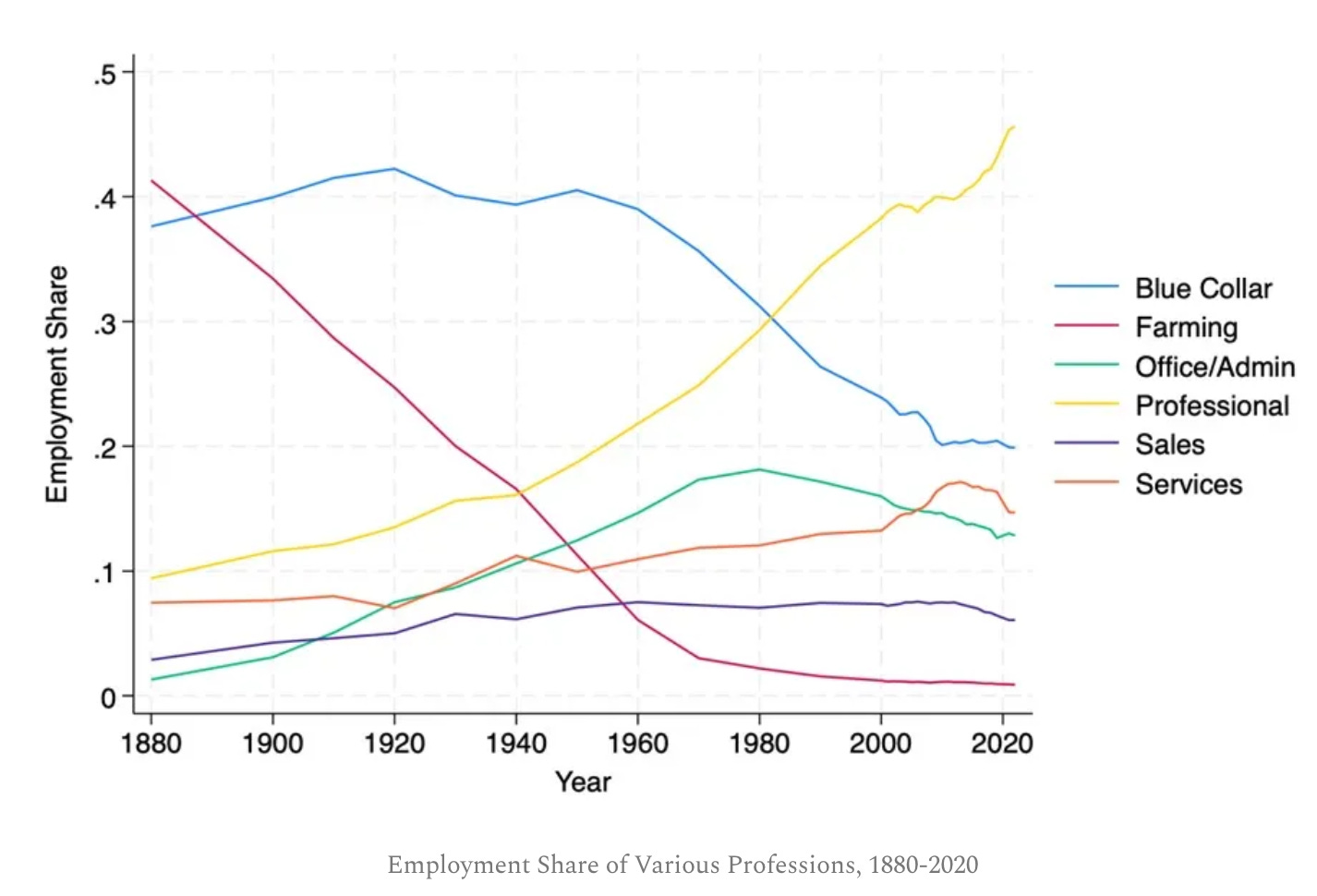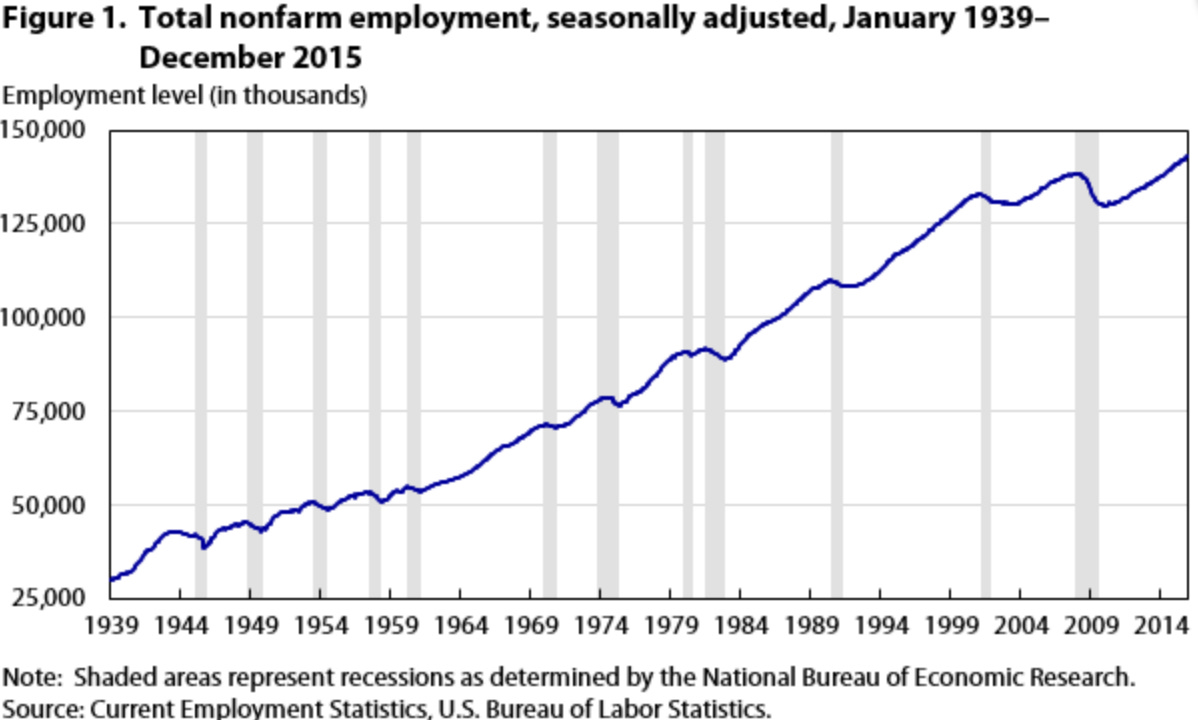ACTUAL EXPERT: No AI jobs apocalypse
Harvard's David Deming — who studies this topic — thinks fears are overblown.
A debate is raging about whether AI will soon eliminate vast swaths of jobs and trigger a mass unemployment crisis.
Some VCs and executives predict that AI will wipe out 20% or 50% or more of white-collar jobs in the next few years. Others — like Elon Musk — have suggested that almost all jobs will be eliminated.
This debate isn’t just academic. Beyond the pain and stress of having your skills made obsolete, mass unemployment stokes social upheaval and political division.
What isn’t being debated is whether AI will cause disruption in jobs and careers. Of course it will. And is.
Just this week, an academic paper concluded that AI adoption is reducing entry-level employment in areas that AI can easily automate, like some software programming. Derek Thompson, who is an expert on this debate, discusses the paper in detail here.
Importantly, the same paper concludes that employment is increasing in other areas. And college graduates who know how to use and develop AI tools are seeing demand for their skills and services soar. (The Wall Street Journal’s Katharine Bindley reports on this here.)
In short, AI seems to be doing to the job market what other technologies have done: Causing change.
As it does, it is creating risk, opportunity, demand for new skills, and… new jobs.
I’m optimistic that the adoption of AI will not cause a “jobs apocalypse” but instead have a similar impact on the economy as previous technologies — e.g., rapid change and disruption, but not overall job elimination.
But I’m not a technology-impact-on-jobs expert. So I talked to someone who is.
Professor David Deming of Harvard’s Kennedy School (now the Dean of Harvard College) has studied the jobs impact of major technology transitions over the past 150 years. He shares many of his findings on his Substack, “Forked Lightning.”
Prof. Deming and I discussed the “AI jobs impact” and “jobs apocalypse” questions on this week’s episode of “Solutions.” (Thank you for listening, watching, and/or following!)
Some of Prof. Deming’s key points and charts:
Job-market transitions take much longer than most people think. Technology changes fast, but people and organizations don’t.
Predictions of technology-driven job-market doom have preceded prior tech transitions, too — and these forecasts have always been wrong.
The biggest technology-jobs-disruption in the last 150 years was not the Internet or computers. It was farming mechanization. In 1890, 40% of US workers worked on farms. Now only 2% do.
The adoption of generative AI is rapid, but we are not seeing major job dislocation yet. (Some? Yes. Major? No.)
AI will augment and change many jobs without replacing them. A recent study, in fact, showed that teams that use AI to analyze questions and make decisions perform better than teams that don't. The "AI colleague" acts as another smart voice in the mix.
We can ease the AI jobs transition by investing in vocational training that teaches necessary skills and also prepares students for an uncertain future.
We also need to change education. Everyone on college campuses is already using AI. We need to stop denying that — or branding it "cheating" — and start adapting curricula and teaching to take advantage of it.
Prof. Deming's advice to students is the same as it has always been: Figure out what kind of work you love doing and then become an expert at it.
This Deming chart shows US “job churn” by decade. Since 1880, the US economy — and the total number of jobs — has grown steadily, but the composition of the job market has continually changed. The fastest period of disruption was from the 1940s to the 1960s, as jobs (and people) moved from farms to cities.
Another Deming chart shows how the US job market has changed. The purple line, for example, shows the decline of agriculture jobs as a percentage of the whole. In 1880, 40% of Americans worked on farms. Today, only 2% do.
Meanwhile, the last chart shows the total number of jobs in the US economy over the last 75 years. Lots of job-market change and disruption, but steady jobs growth…
Thank you for reading Regenerator and listening to Solutions!






